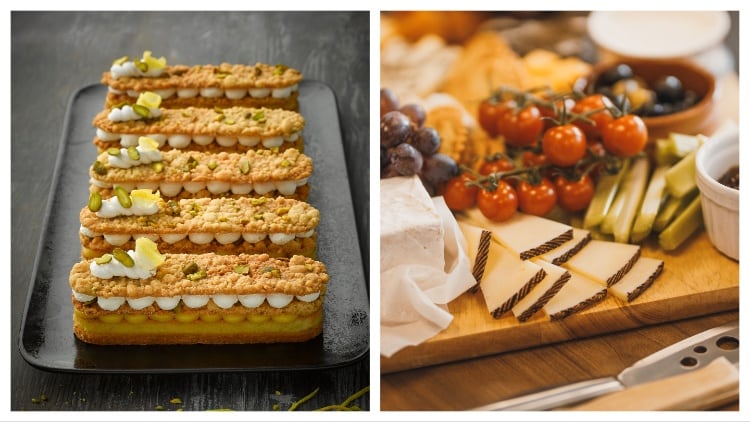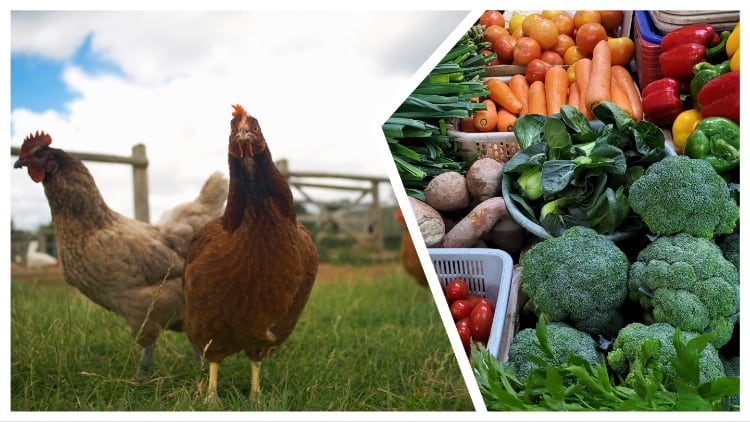Trade deals are a powerful tool for UK food and drink manufacturers. They help businesses of all sizes reach new customers, reduce costs, and simplify the rules of international trade.
Whether you’re a small producer looking to export for the first time or a household name expanding into new markets, Free Trade Agreements (FTAs) can make a real difference. They lower tariffs, cut red tape, and make it easier to meet overseas standards, helping products get to market faster and more competitively.
The UK’s Trade Strategy is focused on securing high-quality, ambitious deals that deliver for exporters. From whisky and baked goods to salmon and cereals, these agreements are opening doors across the globe. And with support available from the Department for Business and Trade (DBT), manufacturers can make the most of the opportunities ahead.
What’s already in the bag: Recent trade wins
Recent trade agreements are already delivering tangible benefits for UK food and drink exporters.
CPTPP
The Comprehensive and Progressive Agreement for Trans-Pacific Partnership (CPTPP) connects the UK to 11 Indo-Pacific countries, including Japan, Vietnam and Australia. For food and drink manufacturers, this means tariff elimination on products such as yogurt to Chile and biscuits to Malaysia. Exporters also benefit from additional quotas for cereals and dairy, and staged tariff reductions on blue cheese and infant formula.
CPTPP also streamlines customs procedures, with commitments to release goods within 48 hours and offer expedited clearance for express shipments, provided all requirements are met. Advance rulings offer legal certainty by confirming the tariff classification, origin, and customs value of goods for a minimum of three years. This helps businesses plan with confidence, reducing the risk of unexpected costs or delays at the border.
UK-India FTA
The UK–India Free Trade Agreement, signed in 2025, is the most economically significant bilateral deal since leaving the EU. When the deal takes effect for businesses, expected to be in 2026, it is estimated to boost UK GDP by £4.8 billion and bilateral trade by £25.5 billion annually.
Tariffs will be removed or reduced on a wide range of UK exports, including whisky, lamb, and other food and drink products. Perishable goods will be prioritised for clearance, reducing the risk of spoilage. The agreement also protects UK food standards and ensures that imported products must meet existing requirements. This deal opens up access to India’s growing middle class and supports UK businesses in selling high quality products to a dynamic market.
Australia, New Zealand and Singapore
Our Free Trade Agreements with Australia and New Zealand and Digital Economy Agreement with Singapore also offer strong benefits. These deals support mutual recognition of standards and certifications, making it easier for UK producers to meet overseas requirements. They also simplify rules of origin and offer more predictable customs processes, which is particularly helpful for SMEs.
Across all these agreements, the impact is clear. UK food and drink manufacturers are seeing increased export volumes, new market entries and reduced red tape. These deals are helping businesses grow their global footprint and bring British products to more customers around the world.
What’s coming up: Future opportunities
The UK’s Trade Strategy continues to focus on opening new doors for food and drink exporters. With several major agreements already in place, attention is now turning to future deals that will support long-term growth, reduce regulatory barriers and promote sustainability.
GCC talks
Negotiations with the Gulf Cooperation Council (GCC) are progressing well. The GCC is the UK’s ninth largest trading partner, with trade worth £54.5 billion in 2024. The upcoming agreement is expected to eliminate or lower tariffs on a range of agri-food goods. It will also simplify customs procedures, making it easier for UK producers to do business across the Middle East.
UK-EU
Closer to home, the UK and EU have agreed to pursue a Sanitary and Phytosanitary (SPS) Agreement. This will remove many of the non-tariff barriers that have disrupted agri-food trade since exiting the EU. Once implemented, it will eliminate the need for costly certificates and routine border checks, helping fresh produce reach shelves faster and with less waste. It will also reopen EU markets to previously restricted UK products such as fresh sausages, certain shellfish and seed potatoes.
The SPS deal is expected to increase UK agri-food exports to the EU by 16 percent and add up to £5.1 billion a year to the UK economy. For Northern Ireland, it will simplify the movement of goods from Great Britain, helping ensure consistent product availability across the UK.
Future agreements are expected to include dynamic alignment of regulations, streamlined customs processes and support for innovation. These elements are particularly important for SMEs, which often face the greatest challenges when entering new markets.
Spotlight on Creative Nature: Q&A with an exporting SME
Creative Nature is a dynamic UK food brand leading the way in allergen-free innovation making the world a better place for those with allergies. Founded with the mission to make food safe, fun, and inclusive, the company offers a wide range of products from grab-and-go snacks to baking mixes all free from the top 14 allergens.
Today, Creative Nature products are enjoyed not only in the UK but also in 18 countries worldwide, with listings spanning major retailers, airlines, and specialist stores.
Q: How have recent UK trade deals impacted your ability to export Creative Nature products?
A: Recent trade deals have definitely created new opportunities for us. They’ve made certain markets more accessible by reducing tariffs or simplifying customs processes. For example, we’ve been able to have more meaningful conversations with distributors in the Asia-Pacific region because the barriers to entry are lower. While some of these agreements are still evolving, knowing the framework is in place gives me more confidence to explore and commit to new markets.
Q: What challenges have you faced when entering new markets, and how have you overcome them?
A: Every market has its hurdles. One of the biggest is regulatory differences, especially around labelling and allergen declarations they’re not the same everywhere, so we’ve often had to adapt packaging.
And then there are cultural differences, like varying consumer attitudes towards allergens for example in Japan buckwheat is a huge allergen but in the UK it does not count as one of the top 14 allergens. We’ve overcome these challenges by doing our homework, visiting the market, building strong local partnerships, and staying flexible in our approach.
Q: How do you ensure your products meet international standards, especially around SPS and labelling?
A: Compliance is absolutely critical for us. Our production is set up with strict allergen controls, and we hold certifications such as BRCGS to give international buyers confidence. When it comes to SPS measures and labelling, I make sure we understand the exact requirements for each market, whether that’s language, format, or allergen statements, and adapt accordingly. Often we work closely with local distributors to double-check everything, because accuracy and trust are key when you’re dealing with allergen-free food.
Q: What support have you received from government services like DBT or the Export Support Service?
A: We’ve had some really positive experiences with government support. We have had the opportunity to apply for trade missions and secured a couple such as Gulfood where we signed on major supermarket Spinneys in the Middle East to stock our brand. On top of this, we have been on a recent trade mission to Japan where DBT enabled us to meet with specific buyers who are interested in our brand.
DBT has also given us access to market insights and help when navigating how to do business with certain countries. The Export Support Service has also been a great source of advice, particularly when we’ve had questions about complex regulations. Having that backing has been invaluable it feels like you’re not on your own when navigating unfamiliar markets.
Q: What advice would you give to other food and drink SMEs looking to start or grow their exports?
A: Do your research before diving in, really understand which markets are right for your product and what’s required to enter them. Understand your price structure and whether your RRP will work in that market, and still give your distributor/retailer enough margin.
Build strong relationships, because having the right local partner can make or break your success. Be prepared to adapt, whether it’s your packaging, portion sizes, or even your flavours, to meet local demand. And most of all, be resilient. Exporting can be tough and sometimes slower in certain countries, but the rewards in terms of brand growth and global recognition make the journey worthwhile.
Finally stick with the research, relationships, resilience, the three R’s of exporting.
Navigating trade deals: Support for food and drink manufacturers
Understanding how to use trade agreements is key to unlocking their benefits. For food and drink manufacturers, this means knowing how to interpret tariff schedules, apply rules of origin and navigate labelling or certification requirements. DBT provides practical support to help businesses make sense of these details.
Through the Export Support Service and the UK Export Academy, manufacturers can access guidance on how trade deals work in practice. DBT’s market access teams and overseas network offer insights into specific country requirements, while businesses can also report trade barriers and get help resolving them. Whether it’s understanding customs procedures or making use of preferential terms, support is available to help manufacturers get the most out of the UK’s trade agreements.




